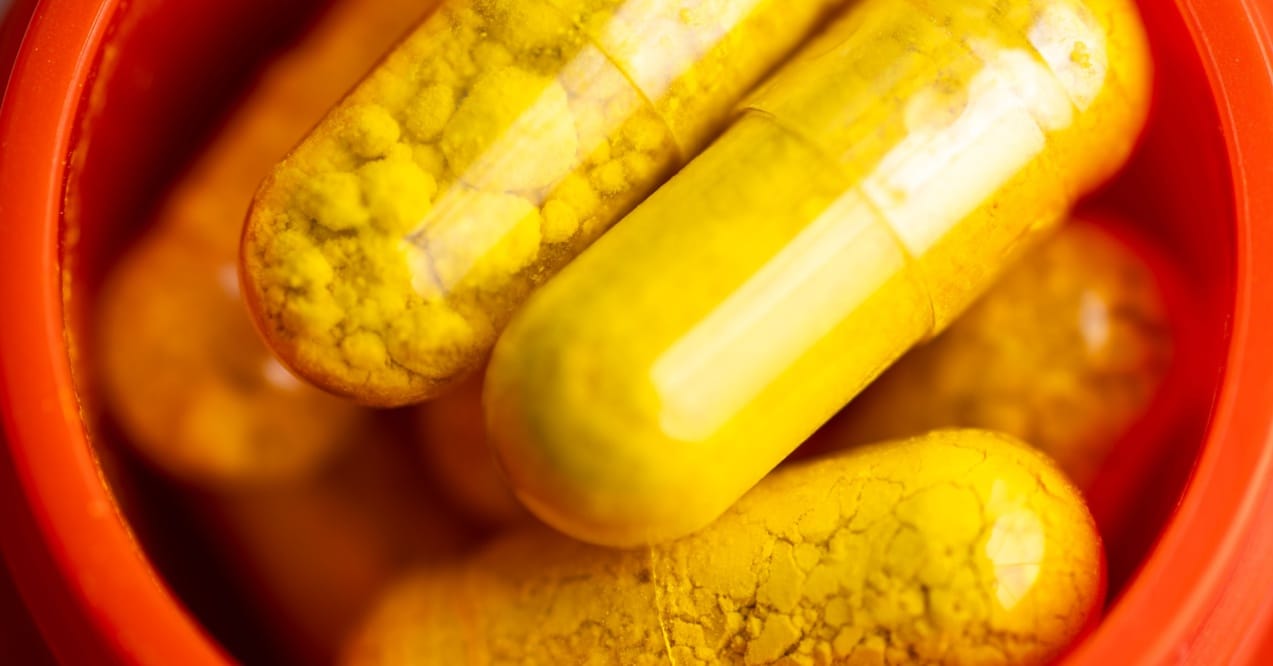How Long Does Berberine Stay In Your System?
Medically reviewed by our experts


How long does berberine stay in your system? Berberine may help with weight management and blood sugar balance, but knowing how it works in your body helps you use it more safely and effectively. This becomes especially important for those managing type 2 diabetes or blood pressure concerns.

Key Article Findings
- Berberine typically stays active in your body for several hours
- The compound may influence blood sugar levels, body weight, and insulin sensitivity
- Factors like dosage, individual metabolism, and overall health affect how long it remains in your system
- Research shows potential benefits, but more long-term safety data is still needed
What Is Berberine and Why Do People Use It?
Berberine is a yellow compound extracted from certain plants like goldenseal, barberry, and Oregon grape. Traditional Chinese medicine has relied on it for hundreds of years to address various health concerns. Today, many people turn to berberine supplements for their potential wellness benefits.
The compound works by activating an enzyme called AMPK in your cells. This enzyme helps control how your body uses energy, which explains why berberine supplements have gained popularity recently. Research has examined its effects on different health markers, from blood sugar to cholesterol levels. While individual results vary, many people find it fits well into their wellness routine when combined with healthy eating and regular movement.
How Long Does Berberine Stay in Your System?
When you take berberine, your body begins processing it through your digestive system. The compound has a half-life of approximately 4 to 6 hours, which means about half of it clears from your bloodstream during this timeframe.
While berberine may clear from your circulation within 24 hours, it triggers certain cellular processes that continue working much longer. These effects persist even after the compound itself has left your bloodstream. Your liver breaks down berberine into different byproducts that your body then eliminates naturally. Most people will have cleared berberine completely within one to two days after their last dose, though those activated cellular processes may work for an extended period.
What Affects How Long It Stays
Several factors influence how long berberine remains active in your body:
- Dosage amount – Higher doses take longer for your body to process completely
- Individual metabolism – Liver function varies from person to person, affecting clearance time
- Gut health – Your gut bacteria influence how well you absorb berberine initially
- Supplement form – Standard berberine hydrochloride versus enhanced formulas with added plant ingredients
The type of berberine supplement you choose can make a noticeable difference. Some formulas combine berberine with other compounds that may improve absorption rates and extend how long the beneficial effects last in your system.
How Berberine May Affect Blood Sugar and Weight
Research suggests berberine’s influence extends well beyond its time circulating in your blood. The compound may help maintain healthy blood sugar levels by working with your cells in ways that persist after elimination. Studies indicate that berberine potentially helps your cells respond more effectively to glucose signals.
People dealing with insulin resistant conditions have shown particular interest in berberine supplements. The compound may help cells become more receptive, which could explain why some study participants experienced improvements in blood glucose levels and body weight over several weeks. Beyond blood sugar, research has explored various berberine benefits including cholesterol management and cardiovascular wellness.
These multiple effects suggest berberine works through different routes in your body. The impacts may outlast its actual presence in your system, creating lasting changes. For those exploring natural approaches to metabolic wellness, quality blood sugar control supplements offer one research-backed option to consider.
How It Works in Your Cells
When berberine enters your cells, it activates the AMPK enzyme system. This activation starts a chain reaction affecting how your cells produce and use energy. AMPK influences several body processes simultaneously:
- Glucose handling in your liver
- Fat storage patterns in your tissues
- Energy production in your muscles
These processes continue working even after berberine clears from your blood. This helps explain why the compound’s beneficial effects can last longer than its physical presence in your circulation.
Can You Use Berberine Regularly?
Most people tolerate berberine supplements well at standard doses. The most common side effects involve digestive changes like temporary gas, bloating, or shifts in bathroom habits. These effects usually decrease as your body adjusts over the first few weeks.
Safety considerations become more important for certain groups. People with existing liver disease should approach berberine cautiously since the compound requires liver processing for elimination. Those managing blood pressure should also note that berberine may influence cardiovascular function, though research in this area continues to develop.
Berberine can affect how your liver processes other substances, which might change how your other supplements work. This makes it important to discuss your complete supplement routine with a healthcare provider before adding berberine, especially if you take multiple daily products. The compound isn’t recommended for pregnant or nursing women due to limited safety data, and young adults under 18 should avoid it unless specifically guided by a qualified health professional.
Using It for Longer Periods
Current research on berberine use mostly covers weeks to months rather than years. Most clinical trials have studied supplementation periods ranging from 8 to 24 weeks, giving us good short-term safety information but less data about extended continuous use.
Some practitioners suggest taking periodic breaks from berberine to let your body reset between cycles. This approach reflects caution about the limited long-term data available, though it’s based more on theoretical concerns than solid evidence currently.
Conclusion
While berberine typically clears from your bloodstream within hours, its metabolic effects may continue working much longer through enzyme activation and cellular processes. Knowing this difference helps you time your doses more effectively and use berberine supplements more strategically. Whether you’re exploring options for blood sugar balance or broader metabolic wellness, berberine offers a research-backed natural compound worth considering.
Berberine’s direct presence in your blood lasts about 4 to 6 hours. However, its metabolic effects may continue for days afterward because it activates cellular processes that keep working after the compound has been eliminated, potentially providing sustained benefits between doses.
Berberine doesn’t typically accumulate in your body with regular use since your liver processes and eliminates it within one to two days. However, the metabolic changes it triggers may become more pronounced with consistent supplementation over several weeks or months.
Most research backs daily berberine use for several weeks to months. Common dosing involves taking berberine two to three times daily with meals. Always start with lower amounts and increase gradually to assess how your body responds to the supplement.
Berberine may influence how your body processes various compounds and can affect blood sugar regulation. Anyone taking prescribed treatments for metabolic conditions should consult their healthcare provider before starting berberine supplements to ensure safe and appropriate combined use.
Some people notice changes in blood glucose levels within a few days of starting berberine. However, more significant effects typically develop over several weeks, with research suggesting the most pronounced benefits appear after 8 to 12 weeks of consistent use combined with healthy lifestyle habits.
Och, A., Et Al. (2022). Berberine, a herbal metabolite in the metabolic syndrome: the risk factors, course, and consequences of the disease. Molecules, 27(4), 1351.
BERBERINE: Overview, uses, side effects, precautions, interactions, dosing and reviews. (n.d.).
Li, W., Et Al. (2014). Berberine regulates AMP‐activated protein kinase signaling pathways and inhibits colon tumorigenesis in mice. Molecular Carcinogenesis, 54(10), 1096–1109.
Li, Z., Et Al. (2023). Berberine and health outcomes: An umbrella review. Phytotherapy Research, 37(5), 2051–2066.
Berberine and weight loss: what you need to know. (n.d.). NCCIH.
Popular Articles
Advertisement. This site offers health, wellness, fitness and nutritional information and is designed for educational purposes only. You should not rely on this information as a substitute for, nor does it replace, professional medical advice, diagnosis, or treatment. If you have any concerns or questions about your health, you should always consult with a physician or other health-care professional. Do not disregard, avoid or delay obtaining medical or health related advice from your health-care professional because of something you may have read on this site. The use of any information provided on this site is solely at your own risk.













